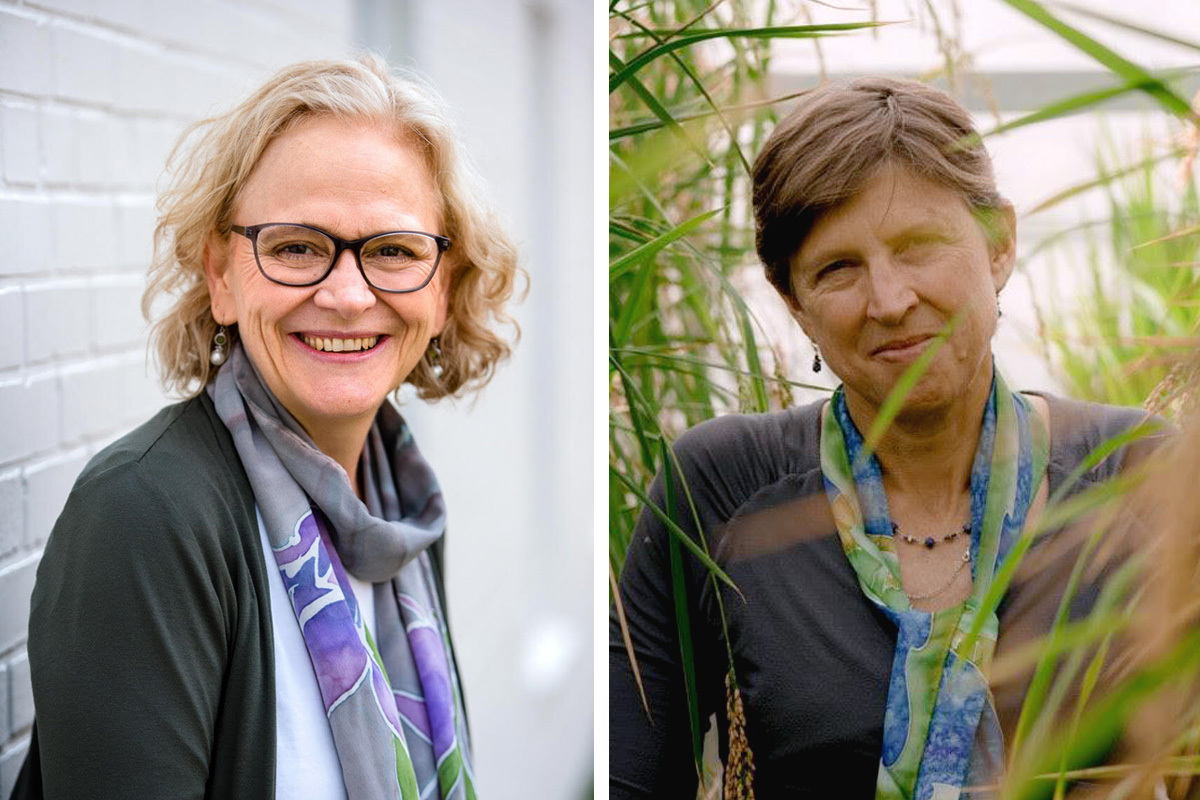Two Reed Grads Elected to National Academy of Sciences
The nation’s top scientific organization hails a pair of Reed researchers for their groundbreaking work.
Two prominent Reed grads have been elected to the nation’s top scientific organization, the National Academy of Sciences, in recognition of their groundbreaking discoveries in the fields of genetics and evolutionary biology.
Pamela Ronald ’82 revealed how the Xa21 gene plays a key role in helping rice crops resist disease. Her work on flood-resistant rice has been credited with improving crop yields in Asia and Africa. (Check out her TED talk on the case for engineering our food.) She’s a plant pathologist at the University of California-Davis.
Susan Alberts ’83 is an evolutionary biologist at Duke University and an expert on the effects of adversity and belonging on the health and survival of primates. She made her mark researching wild primate behavior, devoting the bulk of her career to the study of baboons in Kenya—work she has pursued nearly four decades since her senior year at Reed when she earned a Watson Fellowship to study in Africa.
Being chosen for the National Academy of Sciences is a prestigious achievement reserved for only the most eminent researchers. Reed ranks No. 12 in the nation when it comes to producing fellows in the NAS and its allied academies in medicine and engineering. Reed also ranks No. 1 in the nation in the proportion of STEM majors who go on to earn PhDs in STEM fields.
Ronald and Alberts both say they were inspired to pursue biology by their experiences as students at Reed.
“Reed is the reason I am a scientist,” says Alberts, who started at Reed expecting to major in philosophy. “We’re so lucky to have been there during such a remarkable time in the biology department.”
“You don’t pursue a career at this depth for this long if you’re not excited at the outset,” says Ronald, who says her first-year intro bio course at Reed inspired her to become a scientist.
Ronald recalls getting turned on to genetics by Prof. Peter Russell, whose engaging approach to teaching science as “stories of discovery.” Alberts remembers being enthralled by Prof. Bert Brehm and his description of the complex co-evolution of the fig tree and fig wasp for mutual survival. And both were awestruck by the late Prof. Helen Stafford, the first female faculty member in the division of mathematics and natural science when she was hired in the 1950s.
“She was scary,” Ronald says. “I was so impressed by how she loved her research and her students.”
“I don’t know I realized at the time what a singular role model she was as a woman in science of that generation.” says Alberts. “She was a force of nature. We were amazed and intimidated by her intellect.”
Ronald and Alberts are the third and fourth Reed women to be elected to the National Academy of Sciences, joining the late psychologist Eleanor Maccoby ’39 and neuroscientist Gina Turrigiano ’84. Altogether the NAS has elected 21 Reedies.
The academy’s annual meeting, at which they will be honored, will be held virtually due to Covid-19. Nonetheless, both scientists are looking forward to their next chance to meet and catch up. “Getting this honor is surprising and exciting,” Ronald says. “Even after so many years, you sometimes feel like an impostor just stumbling along. To be recognized by your peers is so meaningful. I’m grateful.”
Tags: Alumni, Awards & Achievements, Institutional, Life Beyond Reed, Research
